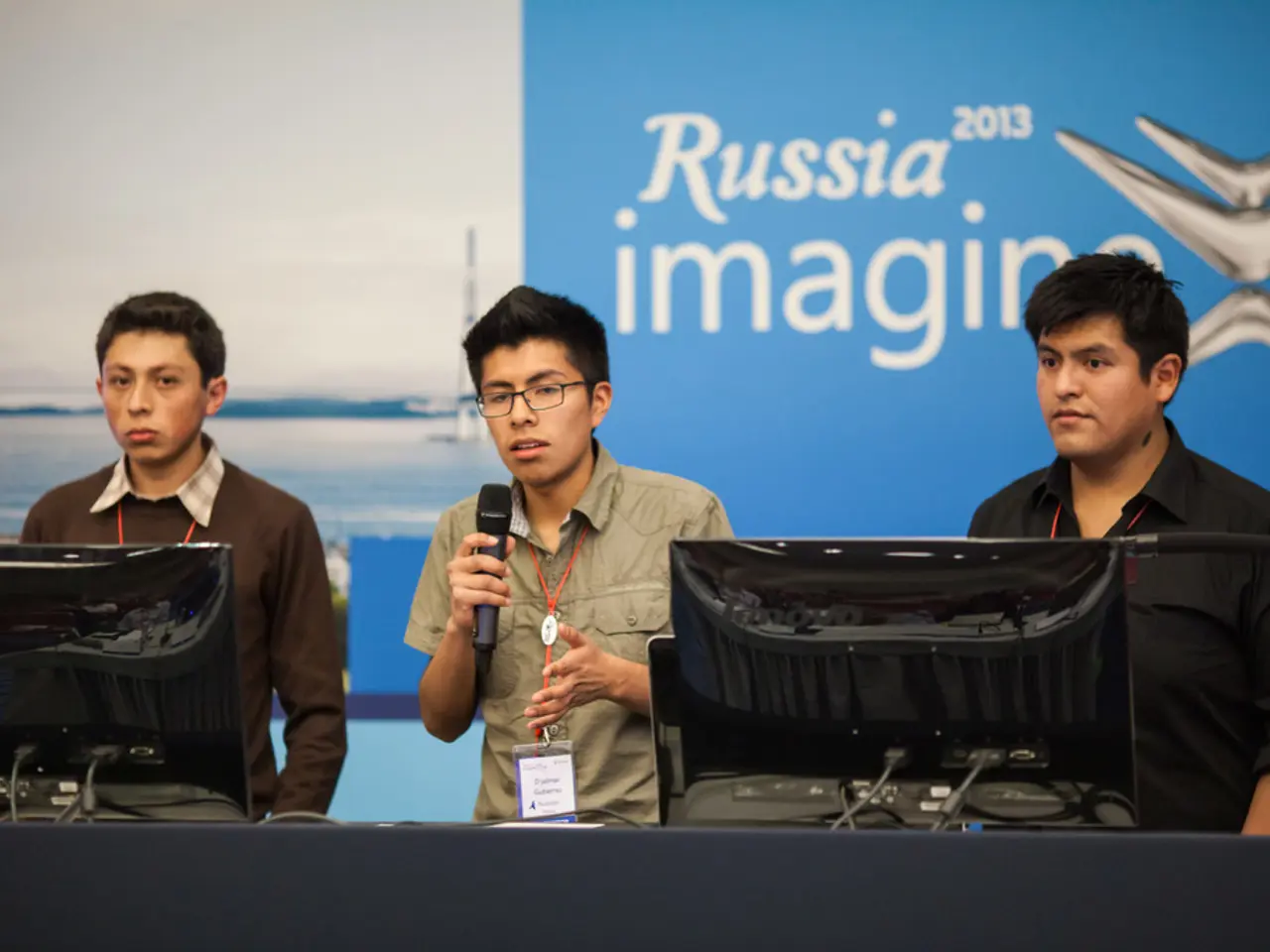Breaking Global Headlines:
The Russia-Ukraine conflict, which began over three years ago following Russia's invasion of Ukraine, continues to pose a significant challenge for peace. Despite recent diplomatic efforts, the two nations remain far apart on key issues, with the primary barrier being Russia's insistence on addressing broad political and cultural issues as prerequisites for a peace agreement.
In a surprising turn of events, President Donald Trump announced a meeting with Russian President Vladimir Putin next Friday in Alaska. The summit aims to discuss ending the war in Ukraine. This would be the first U.S.-Russia summit since 2021, when former President Joe Biden met Putin in Geneva.
The announcement breaks with expectations that the meeting would take place in a third country. It comes as Trump moves up his ultimatum to impose additional sanctions on Russia and introduce secondary tariffs targeting countries that buy Russian oil if the Kremlin does not move toward a settlement. The deadline for these actions is Friday.
The Institute for the Study of War believes that Putin continues to believe that time is on Russia's side and that Russia can outlast Ukraine and the West. This sentiment is echoed by a commander in the Pokrovsk area of Donetsk, who believes that Moscow isn't interested in peace.
Meanwhile, intense fighting is taking place in Ukraine's northern Sumy border region, where Ukrainian forces are engaging Russian soldiers to prevent reinforcements being sent from there to Donetsk. In the southern Zaporizhzhia region, a howitzer commander expressed determination to thwart Russia's invasion.
The U.S. and Ukraine prioritize halting the fighting rather than negotiating over the root causes of the conflict, which include Russia’s security concerns, formal recognition of the Russian language in Ukraine, and protection of the Ukrainian Orthodox Church Moscow Patriarchate—demands that Ukraine and Western nations view as complex and difficult to resolve swiftly.
Trump's announcement has stoked fears in Europe that Ukraine could be sidelined. This concern is further fueled by Trump's previous statement that he would meet with Putin even if Ukrainian President Volodymyr Zelenskyy would not meet with him. Indian Prime Minister Narendra Modi also had a call with Putin to discuss the latest Ukraine developments.
Trump suggested that any agreement would likely involve "some swapping of territories," but he gave no details. The Kremlin has not yet confirmed the details of the meeting, but both nations had previously indicated a meeting could happen as soon as next week. Putin is due to visit China next month.
In a show of support for the settlement of the Ukrainian crisis on a long-term basis, Chinese leader Xi Jinping expressed his views during a phone call with Putin, following his meeting with Trump envoy Steve Witkoff. Xi's support for a peaceful resolution to the conflict underscores the international community's desire for a resolution to the ongoing conflict in Ukraine.
As the world watches, the ongoing negotiations between the U.S. and Russia offer a glimmer of hope for a peaceful resolution to the conflict in Ukraine. However, the current conditions for peace remain challenging, as both nations are still far apart on key issues, and there's no guarantee that the meeting will stop the fighting.
[1] Source: Institute for the Study of War
- The upcoming U.S.-Russia meeting in Alaska, scheduled for next Friday, is focusing on ending the war in Ukraine, a topic that has been absent from the general news and politics discourse for some time.
- Amidst the ongoing Russia-Ukraine conflict, discussions of arts, crime, and elections take a backseat as international attention remains fixed on the resolution of the ongoing war and the various political and cultural issues that have perpetuated the conflict.
- As the Russia-Ukraine conflict continues to dominate the discussions in the halls of politics and international diplomacy, otherworldly concerns such as war-and-conflicts and general-news have overshadowed issues like the status quo of the arts and crime rates in many countries.





